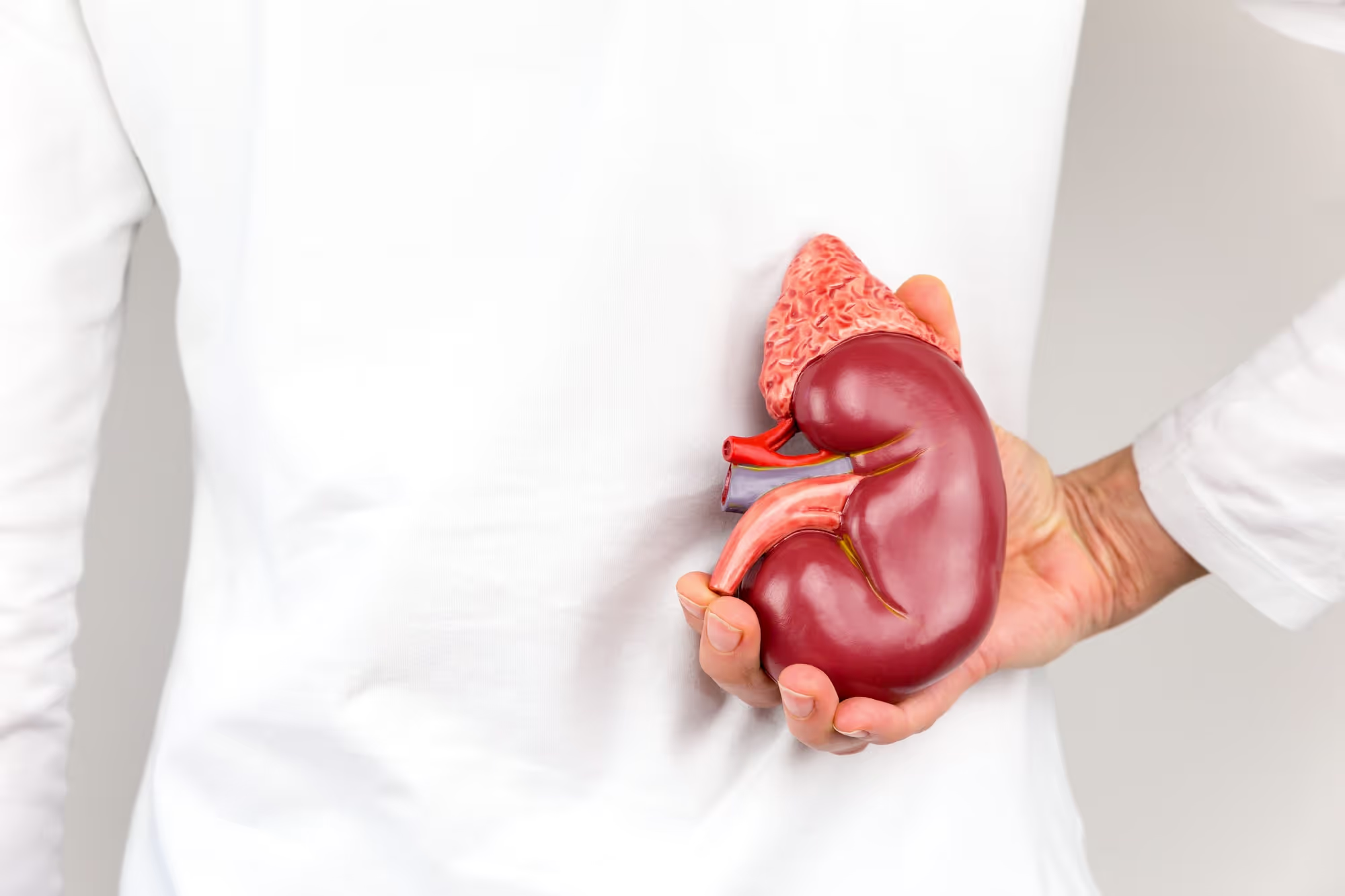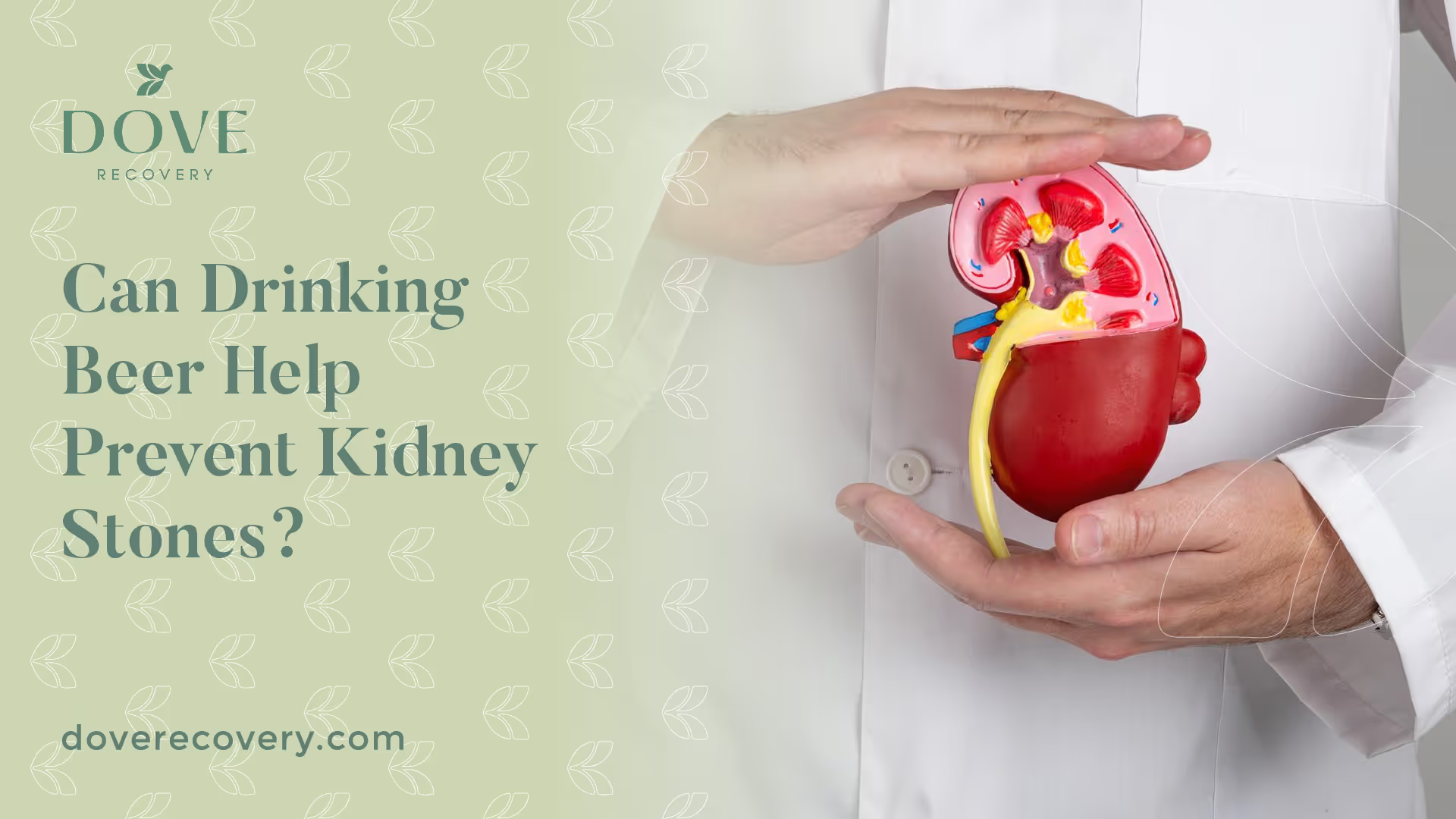Can Drinking Beer Help Prevent Kidney Stones?

Can Drinking Beer Help Prevent Kidney Stones?
While research has suggested that drinking beer in moderation may help reduce the risk of kidney stone formation, excessive alcohol consumption can actually increase the risk. It is important to talk to your doctor about the best treatment options for kidney stones and to maintain a healthy lifestyle that includes a balanced diet, plenty of water, and regular exercise.

What are Kidney Stones?
Kidney stones are small, hard deposits made of mineral and acid salts that form inside the kidneys. They can range in size from a grain of sand to a golf ball, and can cause excruciating pain as they pass through the urinary tract. Kidney stones can be caused by a variety of factors, including dehydration, diet, genetics, and certain medical conditions.
Kidney stones can be a painful and uncomfortable experience for many people. These small, hard deposits form in the kidneys and can cause intense pain when they move through the urinary tract. There are many different treatment options available for kidney stones, but some people have wondered if drinking beer can help.
What Causes Kidney Stones?
Kidney stones can be caused by a variety of factors, including:
- Dehydration, which can lead to concentrated urine and an increased risk of mineral and acid salt buildup in the kidneys.
- Certain diets, such as those high in sodium or animal protein, which have been linked to an increased risk of kidney stone formation.
- Genetics, as some people are more prone to developing kidney stones than others.
- Certain medical conditions, such as hyperparathyroidism or inflammatory bowel disease, which may increase the risk of kidney stone formation.
It's worth noting that kidney stones can also be caused by a combination of these factors. Therefore, it's important to stay hydrated and maintain a balanced diet to reduce your risk of developing kidney stones. If you have a family history of kidney stones or have other risk factors, it's a good idea to talk to your doctor about steps you can take to prevent this painful condition.
Symptoms of Kidney Stones
Symptoms of kidney stones may vary depending on their size and location. Some common symptoms include:
- Intense pain in the back or side that may radiate to the lower abdomen and groin
- Painful urination
- Cloudy or foul-smelling urine
- Blood in the urine
- Nausea and vomiting
- Frequent urination

If you experience any of these symptoms, it's important to see your doctor right away. In some cases, kidney stones may require medical intervention such as medication or surgery to remove them safely.
Different Types of Kidney Stones
There are several types of kidney stones, each with its unique composition. The most common types include:
- Calcium stones: These are the most common type of kidney stone and are made up of calcium oxalate or calcium phosphate.
- Uric acid stones: These form when there is too much uric acid in the urine and can be caused by a diet high in purines, which are found in red meat and shellfish.
- Struvite stones: These stones form as a result of an infection, such as a urinary tract infection.
- Cystine stones: These rare stones form due to a genetic disorder that causes cystine to leak into the urine.
Knowing the type of kidney stone you have can help your doctor determine the best course of treatment. For example, calcium stones may be prevented by reducing your intake of oxalate-rich foods, while uric acid stones may be prevented by limiting your intake of purine-rich foods. If you have recurring kidney stones, it's essential to talk to your doctor about steps you can take to prevent them from forming in the future.
Beer and Kidney Stones
One popular belief among beer enthusiasts is that drinking beer can help prevent and even treat kidney stones. This belief has been circulating for years, with some people even claiming that drinking beer can help dissolve kidney stones or make them easier to pass. But is there any truth to this claim?
Studies have shown that there may be some validity to this belief. Beer contains compounds that have been shown to inhibit the formation of kidney stones. In particular, hops – one of the main ingredients in beer – have been found to have a high concentration of compounds that can help prevent the formation of calcium oxalate kidney stones, the most common type of kidney stone.
However, it's important to note that excessive alcohol consumption can actually increase the risk of kidney stones. So while drinking beer in moderation may have some benefits for kidney stone prevention and treatment, it's important to consume alcohol in moderation and speak with a healthcare professional if you have concerns about kidney stone prevention or treatment.
Can Beer Remove Kidney Stones?
While drinking beer in moderation may have some benefits for kidney stone prevention and treatment, it's important to note that there is no evidence to suggest that beer can remove kidney stones. Once a kidney stone has formed, it typically needs to pass through the urinary tract on its own or be removed through medical intervention.
Drinking beer is not a substitute for medical treatment and should not be relied upon as a sole method of kidney stone removal. If you suspect that you have a kidney stone, it's essential to seek medical attention promptly to ensure safe and effective treatment.
While the question of whether drinking beer can help prevent kidney stones is not yet settled, some research suggests that moderate beer consumption may indeed lower the risk of developing this painful condition.
One study published in the Clinical Journal of the American Society of Nephrology looked at over 200,000 participants and found that those who drank beer had a 41% lower risk of developing kidney stones compared to those who did not drink beer.
The researchers proposed that hops, one of the main ingredients in beer, may play a role in reducing the risk of kidney stone formation. Specifically, they suggested that the compounds in hops may slow down the release of calcium from bones, which can contribute to the formation of kidney stones. However, it is worth noting that more research is needed to confirm this hypothesis.
It's important to keep in mind that excessive alcohol consumption can actually increase the risk of developing kidney stones. This is because alcohol can cause dehydration, which leads to the formation of concentrated urine and can contribute to the development of stones.
Therefore, if you choose to drink beer or any other alcoholic beverage, it's important to do so in moderation and to stay well hydrated.
How are Kidney Stones Diagnosed?
If you suspect that you have kidney stones, your doctor may recommend several diagnostic tests to confirm the diagnosis and determine the best course of treatment.
One common test used to diagnose kidney stones is a CT scan or ultrasound. These imaging tests can help your doctor visualize the size and location of the stone, as well as any potential blockages in the urinary tract.
Your doctor may also order blood and urine tests to check for signs of infection or other underlying conditions that may be contributing to kidney stone formation.
In some cases, your doctor may also perform a urinalysis to check for the presence of blood or crystals in your urine. This can help confirm a diagnosis of kidney stones and guide treatment decisions.
It's important to seek medical attention promptly if you experience symptoms of kidney stones, as early diagnosis and treatment can help prevent complications and reduce the risk of future stone formation.
Treatment Options for Kidney Stones
Treatment options for kidney stones depend on the size and location of the stone, as well as the severity of symptoms. Some common treatment options include:
- Pain management: Over-the-counter pain relievers such as ibuprofen or acetaminophen can help manage pain associated with kidney stones. Your doctor may also prescribe stronger pain medication if needed.
- Fluids: Drinking plenty of fluids, particularly water, can help flush out small kidney stones and prevent new ones from forming.
- Medical therapy: Medications such as alpha-blockers can help relax the muscles in the ureter, making it easier for kidney stones to pass through.
- Surgery: In some cases, surgery may be necessary to remove larger kidney stones or stones that are causing severe symptoms. This may involve procedures such as shock wave lithotripsy or ureteroscopy.
It's important to talk to your doctor about which treatment option is best for you based on the size and location of your kidney stone, as well as any other medical conditions you may have. With proper treatment and prevention strategies, most people with kidney stones are able to manage their condition successfully and avoid future episodes.
Foods and Drinks to Avoid When Suffering from Kidney Stones
If you've experienced kidney stones in the past, or are at risk of developing them, it's important to be mindful of your diet. Certain foods and drinks can increase your risk of developing kidney stones or exacerbate existing symptoms. Here are some foods and drinks to avoid when suffering from kidney stones:
- Sodium: Consuming too much sodium can increase the amount of calcium in your urine, which can lead to the formation of kidney stones. To reduce your sodium intake, avoid processed foods and limit your consumption of table salt.
- Animal protein: Diets high in animal protein have been linked to an increased risk of kidney stone formation. If you consume meat, try to choose lean cuts and limit your portion sizes.
- Oxalate-rich foods: Some vegetables and fruits contain high levels of oxalate, a compound that can contribute to the formation of calcium oxalate kidney stones. Foods high in oxalate include spinach, rhubarb, beets, nuts, chocolate, tea, and strawberries.
- Sugar-sweetened beverages: Drinking sugary beverages such as soda or fruit juice can increase the risk of developing kidney stones. Instead, opt for water or unsweetened beverages.
By avoiding these foods and drinks and maintaining a healthy diet rich in whole grains, fruits, and vegetables, you can reduce your risk of developing kidney stones and prevent future episodes.
Staying Hydrated to Prevent Kidney Stone Formation
One of the most important steps you can take to prevent kidney stone formation is staying well hydrated. When you don't drink enough water, your urine becomes more concentrated, which can increase the risk of mineral and acid salt buildup in the kidneys.
Experts recommend drinking at least 8-10 glasses of water per day to maintain proper hydration levels. If you live in a hot climate or exercise frequently, you may need to drink even more water to stay adequately hydrated.
In addition to water, there are other fluids that can help keep you hydrated and reduce your risk of developing kidney stones. For example, some studies have suggested that drinking lemonade or other citrus-based beverages can help prevent calcium-based kidney stones from forming.
It's also important to note that not all fluids are created equal when it comes to preventing kidney stones. Some beverages, such as soda and energy drinks, contain high levels of sugar and caffeine which can actually increase your risk of developing kidney stones.
By staying well hydrated with water and other healthy fluids, you can reduce your risk of developing kidney stones and promote overall health and wellbeing.
When to Seek a Doctor?
It's essential to seek medical attention promptly if you experience symptoms of kidney stones or suspect that you may have a kidney stone. While small kidney stones may pass on their own, larger stones or those causing severe pain or other complications may require medical intervention.
Your doctor can help determine the size and location of the stone and recommend an appropriate treatment plan. In some cases, imaging tests such as X-rays or ultrasounds may be necessary to diagnose and evaluate kidney stones.
If left untreated, kidney stones can lead to serious complications such as urinary tract infections, kidney damage, or even sepsis. Therefore, it's important to take any symptoms of kidney stones seriously and seek medical attention right away. Your doctor can provide you with the guidance and support you need to manage this painful condition effectively.
Sources:
- Clinical Journal of the American Society of Nephrology: https://cjasn.asnjournals.org/content/4/10/1640
- Medical News Today: https://www.medicalnewstoday.com/articles/323350
